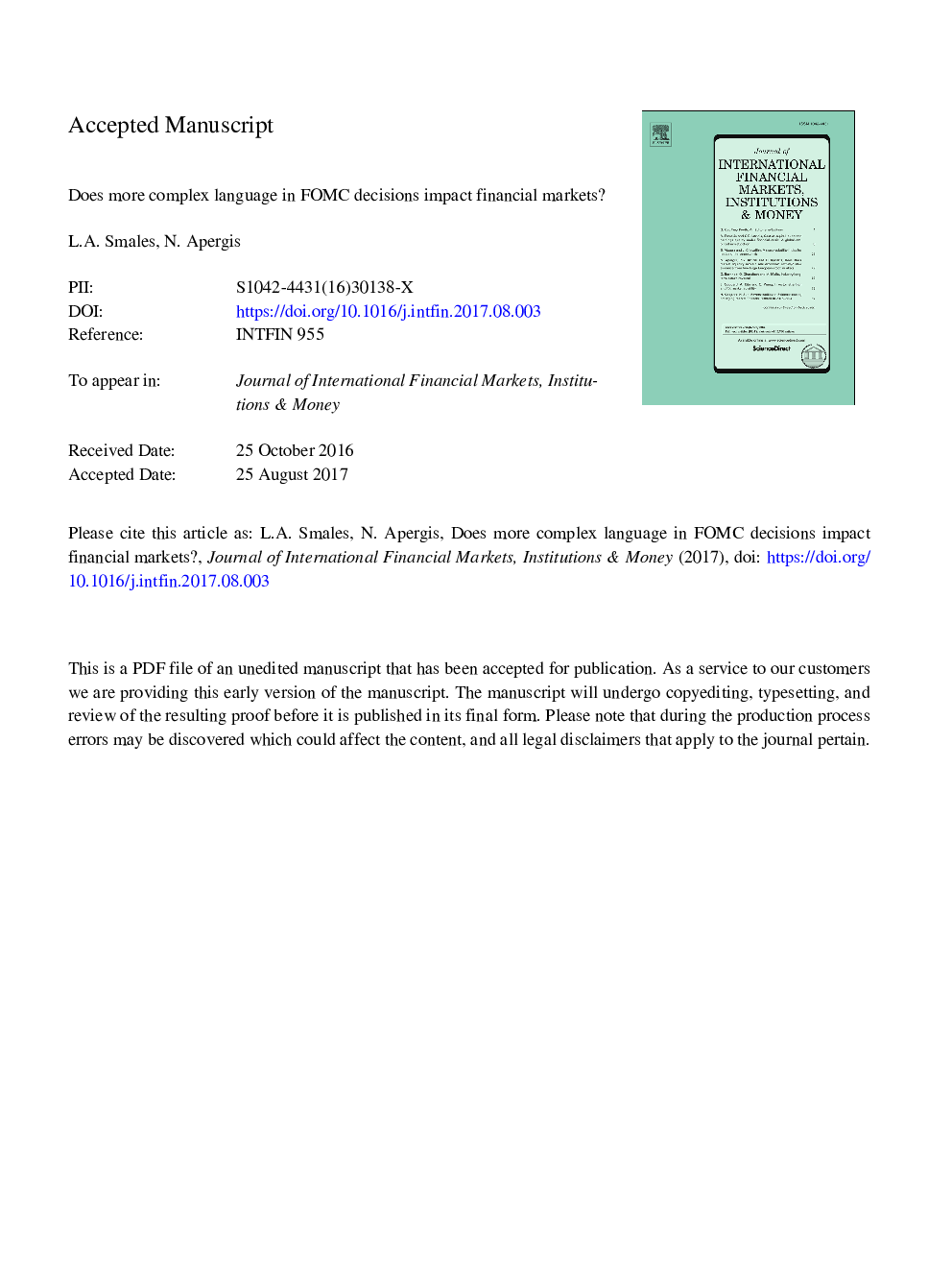| Article ID | Journal | Published Year | Pages | File Type |
|---|---|---|---|---|
| 7364378 | Journal of International Financial Markets, Institutions and Money | 2017 | 52 Pages |
Abstract
This paper is built around a simple premise that is based on the theoretical models of Harris and Raviv (1993) and Kandel and Pearson (1995). Complex statements are more difficult to interpret and may be construed in different ways by different agents. This creates heterogeneity of beliefs among market participants that manifests in increased market activity. We introduce novel measures of linguistic complexity (readability and word count) for the FOMC statements that accompany monetary policy decisions. The empirical evidence shows that monetary policy surprises have a significant impact on financial markets, and clearly demonstrates that more complex language significantly increases the trading volume, and volatility of returns, in stock, bond, and currency markets. We also establish that financial markets are more responsive to monetary policy decisions (and the language of those statements) during recession.
Related Topics
Social Sciences and Humanities
Economics, Econometrics and Finance
Economics and Econometrics
Authors
L.A. Smales, N. Apergis,
